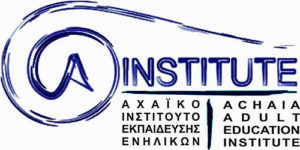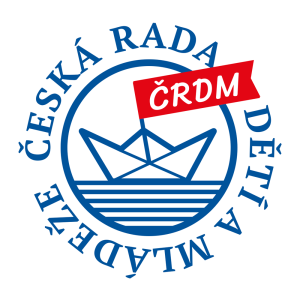
CEBS – Education and Social Research Center è un’associazione senza fini di lucro. La nostra missione è sostenere lo sviluppo della società civile, l’istruzione e promuovere l’imprenditorialità, con particolare riguardo ai gruppi esposti ai rischi di esclusione sociale, economica e interpersonale.
Il CEBS nasce come iniziativa degli specialisti delle scienze sociali per una risposta adeguata ai bisogni educativi di giovani e adulti. L’esperienza del nostro team e dei nostri membri consente l’analisi complessa dei bisogni educativi attraverso l’applicazione di diversi metodi di ricerca e di facilitare la loro soddisfazione professionale. Promuoviamo la formazione dei dipendenti, dei disoccupati e dei giovani in cerca di lavoro. Il CEBS lavora su nuove metodologie didattiche, soluzioni ICT innovative da applicare in ambito educativo e sullo sviluppo di percorsi formativi. Il CEBS promuove attivamente l’attività di volontariato di persone di ogni età e coinvolge i volontari nei progetti e nelle attività dell’associazione che intendono sensibilizzare alla cittadinanza attiva e promuovere la partecipazione attiva alla vita sociale. Conta 15 membri permanenti (ricercatori, specialisti in affari europei, professori universitari e specialisti in ICT e social media), di cui 10 collaborano stabilmente su base lavorativa.
Negli ultimi 5 anni, il CEBS fornisce informazioni complesse su tutte le questioni legate all’Unione Europea e alle sue istituzioni, nonché comunicazioni sulle politiche e sui programmi europei. Queste informazioni assumono una forma diversa, dalla singola consultazione su base pratica, dal web (www.europedirect-wroclaw.pl) e dai social media (https://www.facebook.com/EDWroclaw/), dai media locali e dall’educazione sui social e competenze civiche.
Il campo principale dell’educazione degli adulti è lo sviluppo delle competenze civiche e sociali con particolare riguardo all’educazione europea. Attraverso attività realizzate all’interno del Centro informazioni Europe Direct, fornisce corsi ed eventi rivolti a diversi gruppi, ma principalmente agli adulti. Organizza corsi di formazione sulla partecipazione civica tra cui: impegno civico delle persone nel processo partecipativo delle consultazioni pubbliche, democrazia in Europa, istituzioni dell’UE, elezioni del PE, consultazioni con un target specifico, cittadinanza attiva e molto altro.
Dal 2013 ha implementato oltre 80 diversi corsi individualmente adattati alle esigenze degli studenti. Inoltre, ha organizzato attività basate sull’apprendimento non formale, come giochi e happening in città.
Fondazione Toscana Sostenibile è un’organizzazione no-profit nata nel 2002 con l’obiettivo di promuovere modelli di sviluppo sostenibile attraverso la ricerca e la diffusione della conoscenza. FTS è convinta che l’educazione alla sensibilità ambientale debba partire dai giovani, a tal fine cerca di coinvolgere i giovani volontari in tutte le sue attività di divulgazione e formazione (progetti europei e iniziative locali). FTS promuove la sostenibilità ambientale e la partecipazione alla vita civile, interagendo con numerose personalità politiche e sociali, enti pubblici e scuole, coinvolgendole nei propri progetti educativi e scientifici, al fine di promuovere la qualità ambientale, sociale ed economica della Toscana attraverso l’educazione e l’apprendimento permanente, secondo le normative europee, nazionali e regionali.


The Achaia Adult Education Institute’s podcast within the YISEM program, co-financed by the European Union, provides an insightful overview of their participation in the Erasmus+ program, focusing on the basic training course in Bologna, Italy.
During this program, participants engaged with young people from various EU countries, fostering cross-cultural exchange and understanding. They acquired essential business skills, including finance, storytelling, marketing, and social entrepreneurship, with practical elements like SWOT analysis and elevator pitches.
Furthermore, the participants presented their innovative business idea aimed at collecting agricultural wood waste to prevent fires, reduce air pollution, and recycle the material into pellets and sawdust. This concept aligns with new EU environmental obligations for farmers.
Upon returning, the team assessed the viability of their idea and sought guidance from local social entrepreneurship agencies and experts. They explored various funding options, from regional aid to European programs and crowd funding.
We also spoke with the CEO of the Institute, Mrs. Sandy Vamvaka, who told us what issues you are active in the field of education. More specifically, the institute deals with foreign language courses, Erasmus programs, etc. Also, we asked her about the collaboration we had with Yisem, and we spoke about how the podcasts were created and how the participants felt during this one year of creativity.
In summary, the YISEM program was an educational and transformative experience for the participants. It facilitated cross-cultural collaboration, improved entrepreneurial knowledge, and encouraged the development of a sustainable business concept with an environmental focus. The team’s actions after the program indicate their commitment to turning this idea into a practical venture and their eagerness to partake in similar opportunities in the future.
The CLASH Cultural Association is a non-profit organization, created by Entuthiasts with experience in the participation, creation and management of different cultural projects. Our goal is the enhancement of cooperation and cultural development in the city of Seville. We focus in communication planning, realization of cultural programs, as well as contribution in new ideas that activate the processes of cultural creation and its diffusion. We work on projects included in the Erasmus + and ESC Program, but we also create projects at local and regional level. All of them aimed at young people. We promote cooperation, exchange and mobility among European cultural management professionals and young people in various fields. We take part to activities that are aimed at the formation and consolidation of a European citizenship like socio-cultural, non-formal education and fostering research about inclusion policies, through youth exchanges, trainings, European volunteer service.

European Youth Forum – Since 2012 ČRDM is a full member of this European-wide umbrella organisation of National Youth Council and International Organisations. ČRDM is involved in the activities of the European Youth Forum, like seminars, projects presentations, meetings and networking (e.g. of newly founded national youth councils in Central and Eastern Europe and the Balkans).
Participation on seminars in Europe – Representatives of ČRDM take part at many international events and activities, e.g. Youth Events of the European Union Presidency, seminars of the European Youth Forum, Youth Forum EU-Africa, networking seminars, talks with other National Youth Councils within the BBC+ platform of the European Youth Forum, meetings and study visits to partner organisations from abroad.
Bilateral youth exchange with Israel – During one week in the Czech Republic in summer and another one in autumn in Israel, 8 young Czechs and 8 Israelis visit the other country, where they learn about the other country (culture, people, history) and specifics of youth work in different organisations and youth movements. They discuss about historical, as well as current topics and visit interesting and important places like Prague, Terezín, Lidice, Tel Aviv, Jerusalem or Masada. The project was considered successful and it was agreed that it would continue in 2012.
Other international activities – ČRDM is also active in organising international youth exchanges, seminars and trainigs (e.g. “Participate in the structured dialogue!” in November 2012), takes part at events and activities of its international partners (Co-ordinating Centre of Czech-German Youth Exchanges Tandem, National Youth Councils in neighbour countries), in dealings regarding youth field within the V4 countries and cooperates with other youth policy actors mainly in European context.